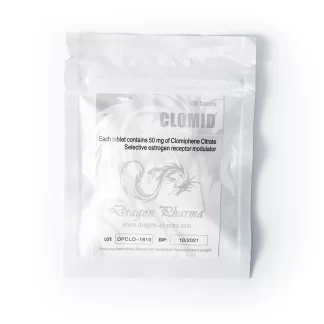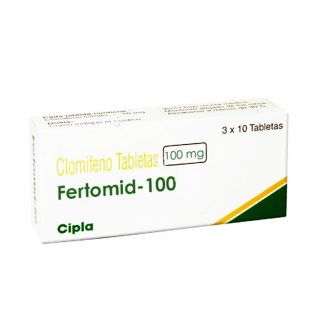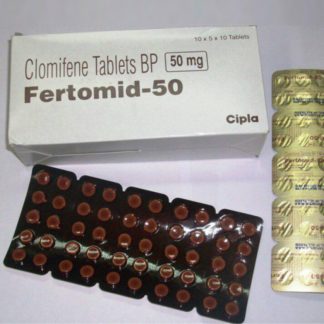Clomid
Clomid (Clomiphene) blocks the action of estrogen in certain tissues by binding to receptors, while in other tissues it can act as a real estrogen by activating receptors. In men clomid acts as an antiestrogen in its ability to interfere with the negative feedback of estrogens to the hypothalamus and stimulate increased production of GnRH (gonadoliberin). As a result, the production of the luteinizing hormone prolactin and the follicle-stimulating hormone by the pituitary gland will be increased, which in turn can increase the production of testosterone by the testicles.
This is why Clomid is good for stimulating testosterone.
Clomid does not directly affect the level of estrogens in the blood.
Showing all 5 resultsSorted by popularity
-

Ultima-Clomid (Clomifene 50mg 50 pills)
$17.00 Add to cart -

Clomid (Clomifene 50mg 100 pills)
$64.90 Add to cart -

Clomid 100mg / Fertomid-100 (Clomifene 100mg)
$11.00 Add to cart -

Clomid 50mg / Fertomid-50 (Clomifene 50mg)
$7.00 Add to cart -

Promifen (Clomifene 50mg 50 pills)
$38.50 Add to cart
Showing all 5 resultsSorted by popularity




